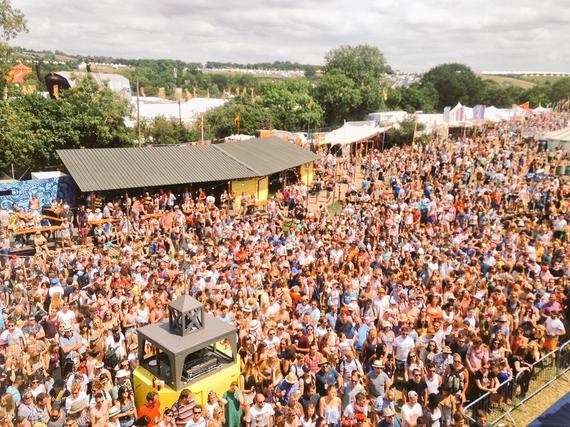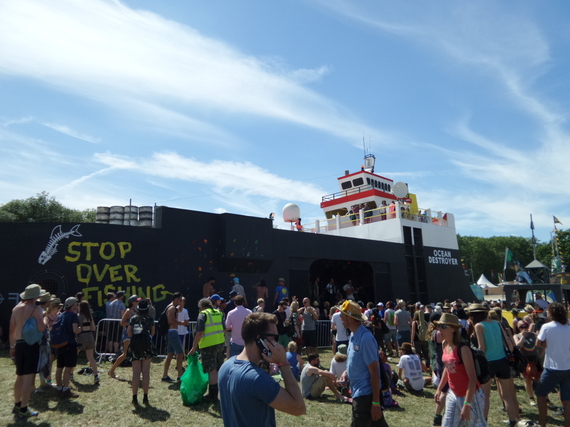The Glastonbury festival of music and performing arts began in 1970 and has been a countercultural icon ever since. For a fleeting moment, money and status take a back seat while shared experience and friendship take over. The most visible brands are not global corporations but Greenpeace, WaterAid and Oxfam. This year the Greenpeace field contains a replica of a giant fishing trawler, next to subtly waving coral representing the endangered Great Barrier Reef. Young people arriving from Britain's identikit town centers discover a place that is unique and rebellious. For many of them this is the first time they've enjoyed a pitch of grass without a corporate sponsor in sight.
Glastonbury is what systems scientist Dr. Orit Gal might describe as "social acupuncture", a tiny incision in the rigid face of Englishness that has been causing disruptive ripples in the national body for decades. Gal has studied how complex systems can be altered by small, targeted interventions that unfold in unexpected ways. Michael Eavis couldn't have predicted the monster he was about to unleash when he invited a few bands to play in his field and offered free pints of milk to the bemused arrivals. But over the years it has grown into a true movement, spawning hundreds of other festivals and helping normalise a shared spiritual experience that is now widely accepted as part of British culture.
The BBC now devotes hours of coverage and hundreds of staff to Glastonbury. Teenagers from Glasgow nod along with lawyers from Birmingham in the dance tent. Incredibly, Glasto has snuck onto the official British summer calendar alongside Wimbledon and the last night of the Proms. And over the course of the weekend, the rest of the UK variously sneers, laughs or stares in disbelief. When the established order is seriously challenged, those who do so are generally ridiculed. Glastonbury is a case in point.
Of course people will argue that the festival costs money to attend, and that the steel fence around its perimeter is a symbol of exclusivity. But the festival exists within the 21st century capitalist system and has to survive like the rest of us. Only the most hardened cynic could claim these things completely undermine the positive effects this experience has on thousands of people each year. And despite Glastonbury's huge success it remains surprisingly radical. Michael and Emily Eavis deserve great credit for their decision to keep sponsorship to an absolute minimum and to protect the independent spirit of the event.
Britain has big problems to deal with. From inequality to poverty, climate change to corruption, we face deeply complex social issues that often seem impossible to solve. But for one weekend a year, 200,000 people share a space in Somerset and see a glimpse of something different. We experience a more spiritual connection with each other and the natural world. We place value on things that our economic system currently disregards as completely worthless. We feel proud to be British, but even more happy to be equal. Glastonbury won't change the world on its own, but it might just help light the way.

